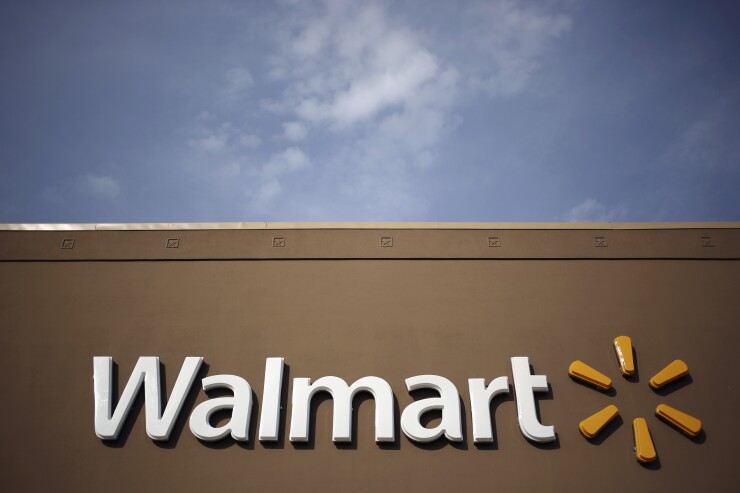(Bloomberg) – Wal-Mart Stores Inc. is boosting its starting hourly wage to $11 and delivering bonuses to employees, capitalizing on the U.S. tax overhaul to stay competitive in a tightening labor market.
The increase takes effect next month and will cost $300 million on top of wage hikes that were already planned, the world’s largest retailer said Thursday. The one-time bonus of up to $1,000 is based on seniority and will amount to an additional $400 million. The company is also expanding its maternity and parental leave policy and adding an adoption benefit.

“Tax reform gives us the opportunity to be more competitive globally and to accelerate plans for the U.S.,” Chief Executive Officer Doug McMillon said in the statement.
The move comes three years after Wal-Mart last announced it was raising wages, spending $1 billion in 2015 to lift starting hourly pay to $9 and then to $10 for most workers the following year. The increase cut into profit and was criticized by some longer-tenured employees as unfair to them. Since then, many states have enacted minimum wage laws, meaning that a “sizable group” of its 4,700 U.S. stores already pay $11 an hour, according to spokesman Kory Lundberg.
Wal-Mart, the nation’s largest private employer, has fought in recent years to improve its image in the U.S., as it weathered criticism over its treatment of employees. With the wage increase and bonus payment, the company seeks to even its pay gap with resurgent rival Target Corp., while simultaneously sending a high-profile thank you to the U.S. government for slashing the corporate tax rate.
Lower Unemployment
The nation’s unemployment rate has also plummeted from 5.7% to 4.1% over that time, creating a battle to recruit and retain cashiers and shelf stockers.
Even with the wage bump, many workers will struggle if they’re the sole breadwinner. A rate of $11 an hour translates to $22,000 a year for a typical 40-hour week, without paid vacation time. The federal poverty level for a family of four is about $24,600, according to the U.S. Census Bureau.
The wage hike follows Target’s October decision to up its minimum hourly wage to $11, which it will further boost to $15 by the end of 2020. Costco Wholesale Corp. and other retail chains like TJX Cos. have also raised wages in recent years.
Publicity Wave
Wal-Mart’s decision makes it the latest corporate titan to plow expected tax savings into employee payouts. Boeing Co., AT&T Inc. and Wells Fargo & Co. have all made similar announcements in recent weeks. Wal-Mart said it’s “early in the process of assessing potential additional investments” it could make.
Wal-Mart also is coming off a resurgence in same-store sales in recent years, giving it more of a cushion to boost pay. Last quarter, the Bentonville, Arkansas-based company posted its strongest U.S. sales gain in more than eight years.
The one-time bonuses will range from $200 to $1,000, depending on how long workers have been with Wal-Mart. The idea is to reward employees who won’t benefit from the new starting wage.
The company also will provide full-time hourly workers with 10 weeks of paid maternity leave and six weeks of paternal leave. Parents who adopt kids will get the same benefit, along with $5,000 to help cover the costs.





